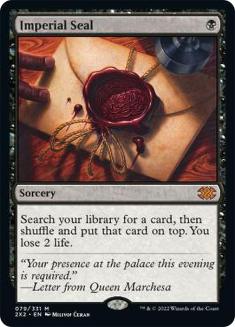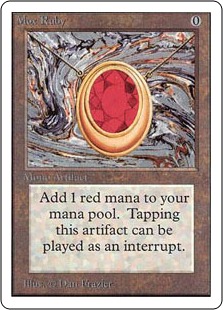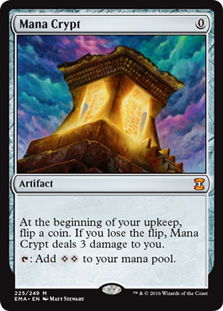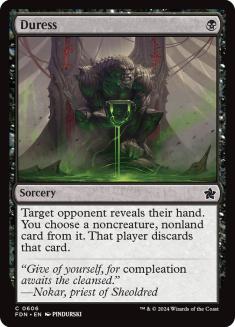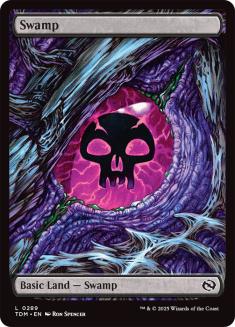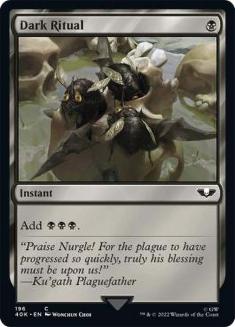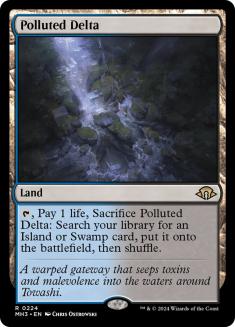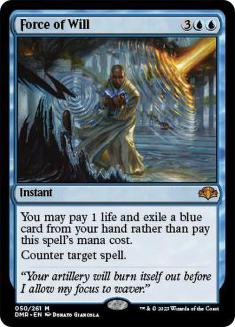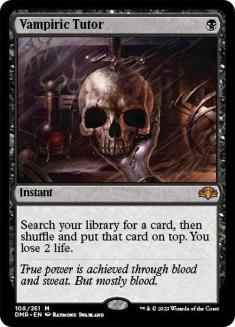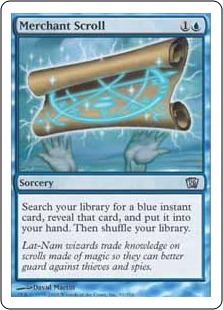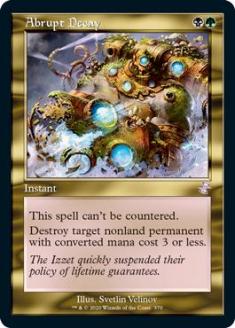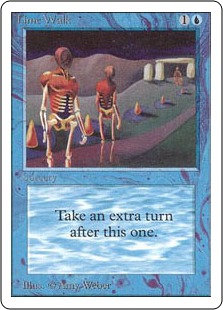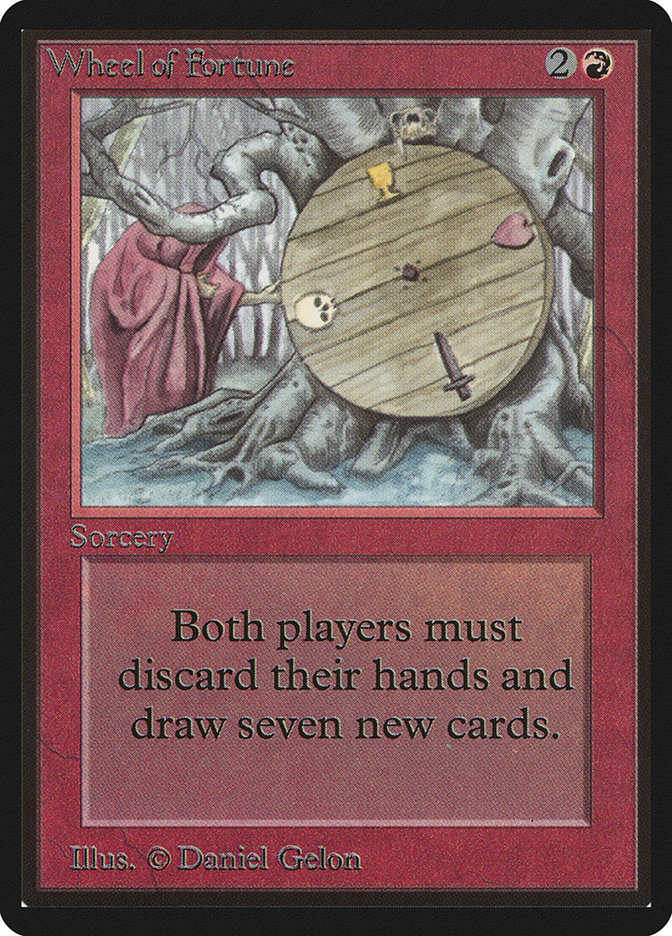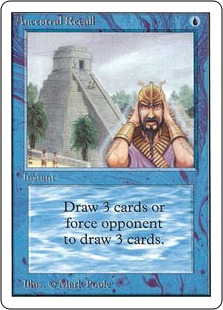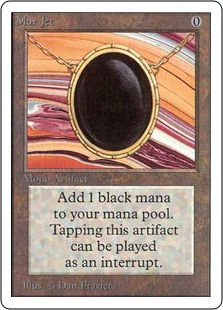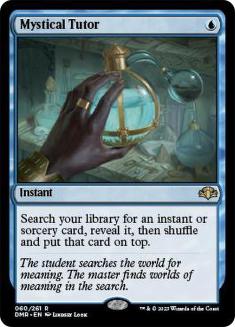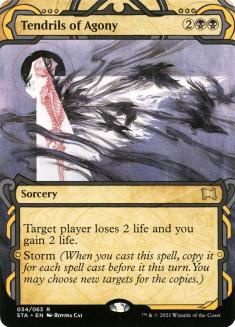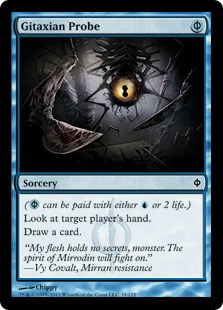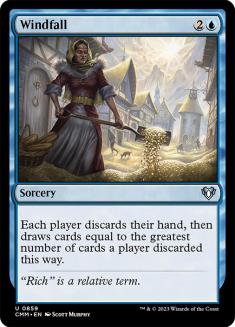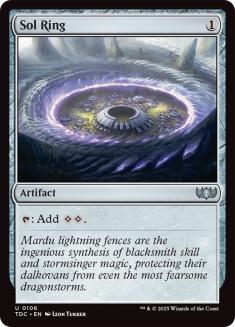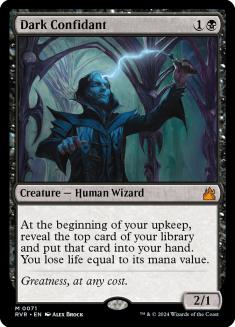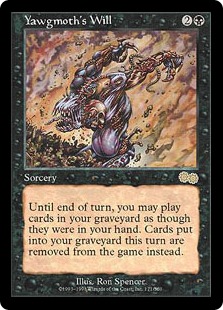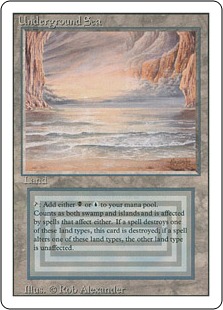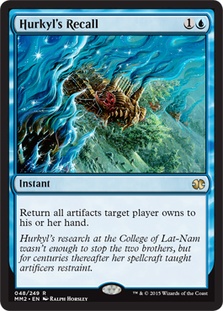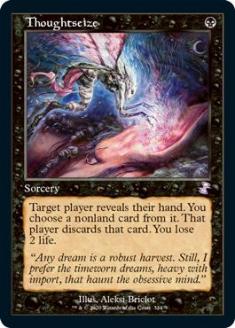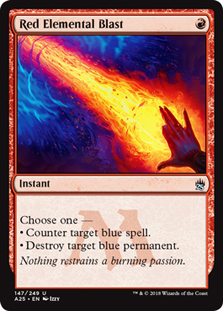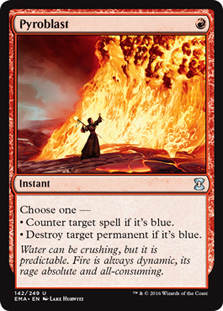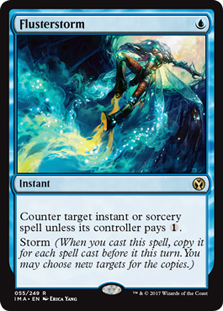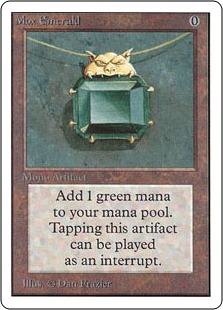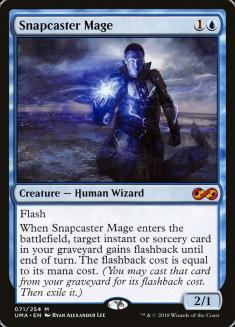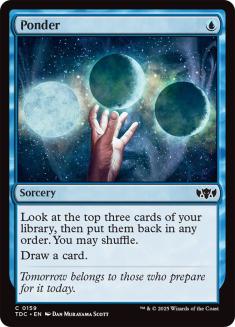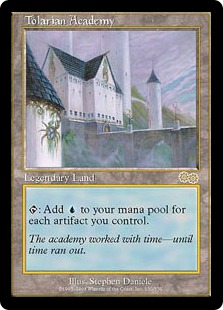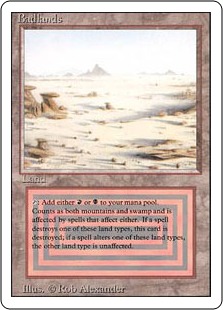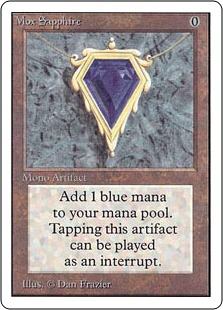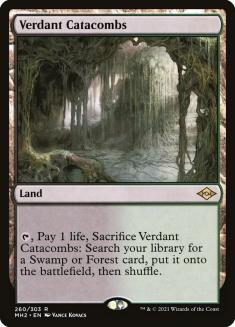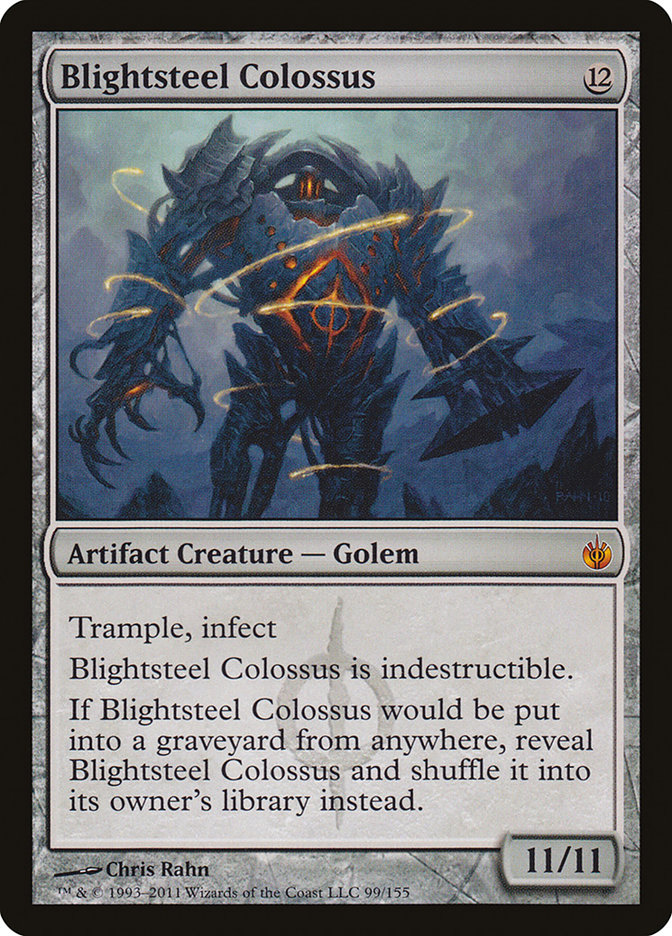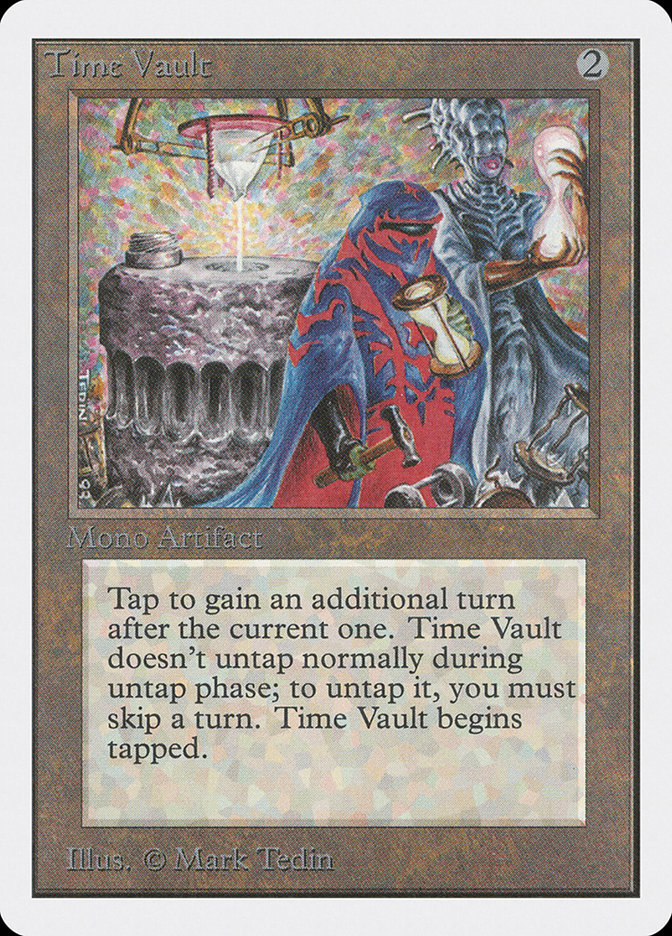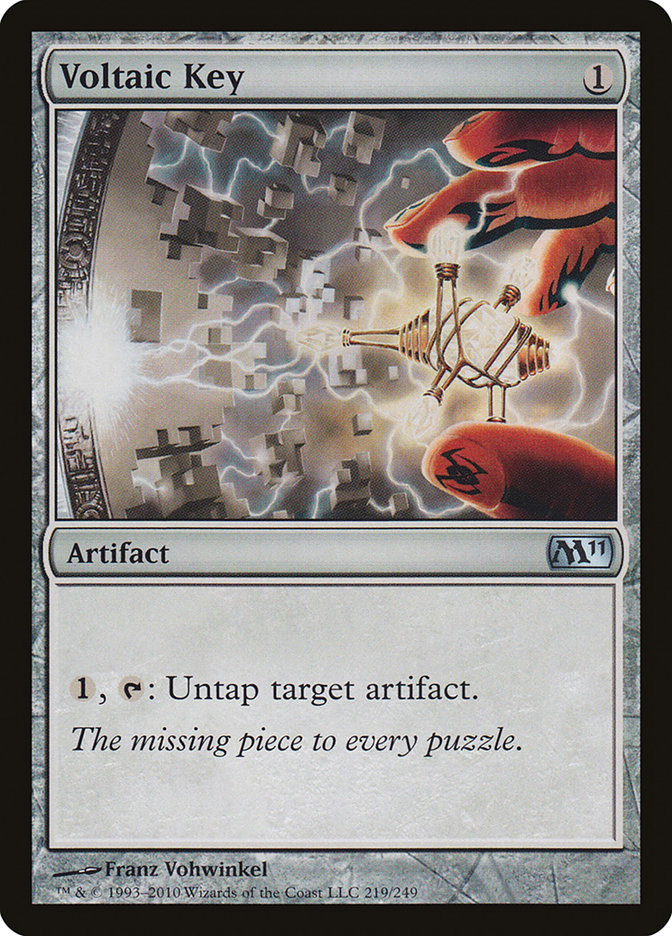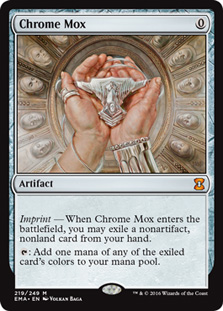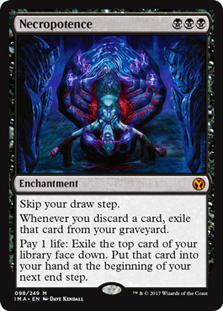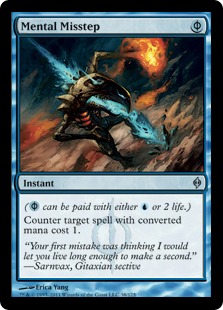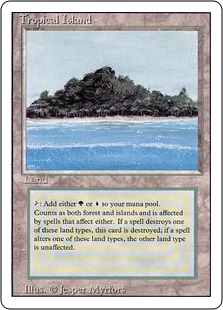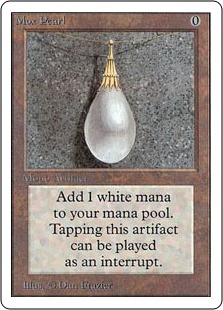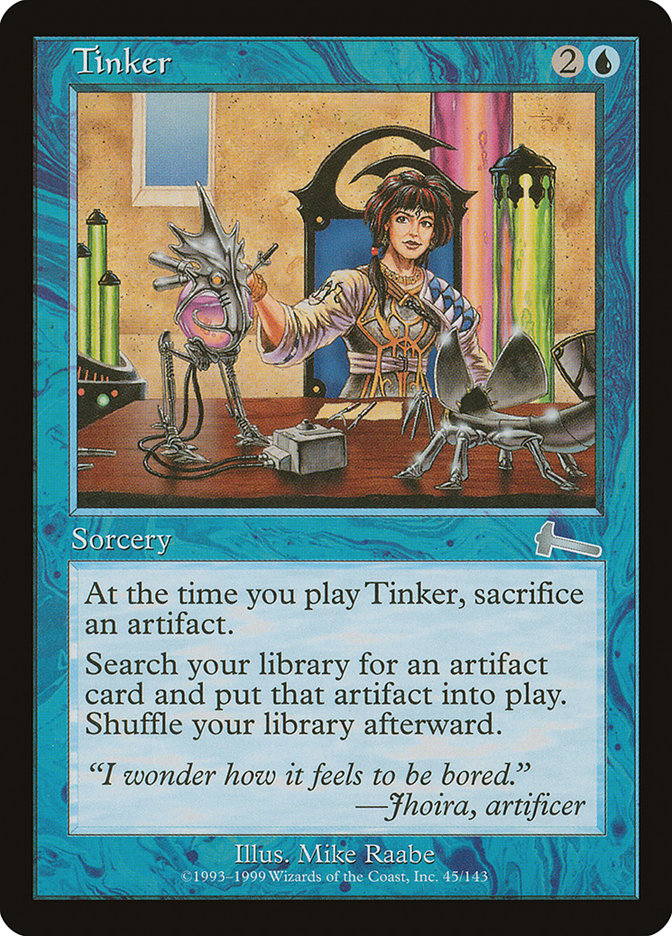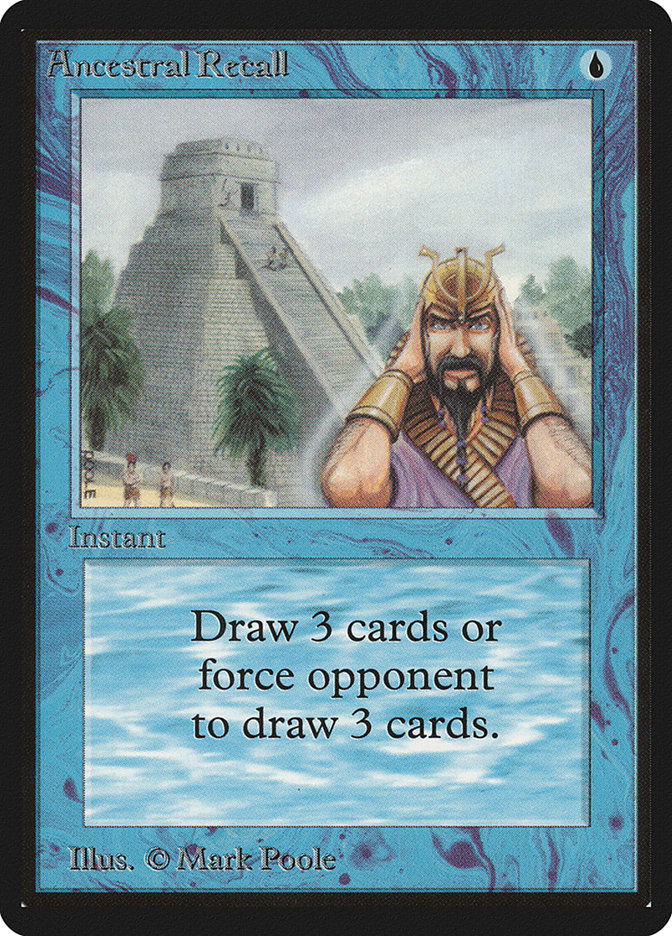Grand Prix Philadelphia was a blast. The best thing about not making day 2 at a Grand Prix is that it affords a player like me a lot of opportunity to take in some sweet Vintage action.
Saturday night I got a chance to watch a good portion of the no proxy Vintage side event that took place at the GP. One of the more exciting things I got to witness was an epic showdown between two friends of mine, Paul Mastriano and Nick Coss, during the tournament.
For those of you not familiar with these two players, both are fixtures of the Vintage community and have a long history of tournament success. Paul is a former Vintage World Champion and has won countless Black Lotuses all around the USA. Nick is the owner of a website that buys and sells cards and the tournament organizer for Eternal Weekend in Philadelphia (being held October 24-26 this year) and has been a Vintage ringer for as long as I can remember.
Paul ended up taking the match down in three games, but the match itself was riveting since there was a lot of back and forth between the decks and all of the games were very tightly played.
Creatures (2)
Lands (12)
Spells (46)
- 1 Tendrils of Agony
- 1 Brainstorm
- 1 Cabal Ritual
- 1 Yawgmoth's Bargain
- 1 Vampiric Tutor
- 1 Mystical Tutor
- 1 Yawgmoth's Will
- 4 Duress
- 1 Necropotence
- 1 Mana Vault
- 1 Wheel of Fortune
- 1 Sol Ring
- 1 Demonic Tutor
- 1 Hurkyl's Recall
- 1 Time Walk
- 4 Dark Ritual
- 1 Ancestral Recall
- 1 Imperial Seal
- 1 Grim Tutor
- 1 Mana Crypt
- 1 Windfall
- 1 Timetwister
- 1 Mind's Desire
- 1 Chain of Vapor
- 1 Tinker
- 1 Black Lotus
- 1 Lotus Petal
- 1 Lion's Eye Diamond
- 1 Mox Emerald
- 1 Mox Jet
- 1 Mox Pearl
- 1 Mox Ruby
- 1 Mox Sapphire
- 1 Chrome Mox
- 1 Ponder
- 1 Mental Misstep
- 4 Gitaxian Probe

Creatures (7)
Planeswalkers (2)
Lands (14)
Spells (37)
- 1 Sensei's Divining Top
- 1 Brainstorm
- 2 Mana Drain
- 1 Vampiric Tutor
- 1 Mystical Tutor
- 1 Yawgmoth's Will
- 4 Force of Will
- 1 Mana Vault
- 1 Sol Ring
- 1 Demonic Tutor
- 1 Hurkyl's Recall
- 1 Time Walk
- 1 Ancestral Recall
- 1 Mana Crypt
- 1 Time Vault
- 1 Thirst for Knowledge
- 1 Tinker
- 1 Voltaic Key
- 1 Black Lotus
- 1 Mox Emerald
- 1 Mox Jet
- 1 Mox Pearl
- 1 Mox Ruby
- 1 Mox Sapphire
- 1 Ponder
- 2 Thoughtseize
- 2 Spell Pierce
- 2 Mental Misstep
- 2 Abrupt Decay
Sideboard

Both are pretty classic Vintage decks. Nick’s TPS deck is a very fast and broken combo deck, and Paul’s list is a blue control deck that has lots of routes to a combo finish.
The first thing I did was ask both players what they thought about the matchup. Nick and Paul agreed that the matchup was fairly close in terms of which deck was favored, with both players giving a slight edge to Nick’s combo deck. They also agreed that realistically whoever won the die roll would have a pretty significant advantage since the games tend to be very fast and often the player who gets the most turns is favored to win.
Being on the play is also a pretty huge advantage for Nick’s TPS deck because he has the ability to cast a turn 1 Wheel of Fortune or Timetwister. If Paul’s control deck is on the play, he at least has the opportunity to play out his lands and Moxes and doesn’t risk simply losing them to a turn 1 draw 7 and falling many cards behind.
Nick won the die roll and chose to play first. While he may have been lucky to be the high roller, his opening hand contained no mana sources, and he was forced to mulligan.
Paul on the other hand had an “easy keep,” as he chose to stick with his seven-card hand.
Nick opted to keep his six-card hand of:
Nick led with a Swamp, played an Imperial Seal, dropping him to eighteen life, and passed the turn.
Paul drew for his turn and held the following hand:
Paul dropped a Polluted Delta and passed back to Nick.
Nick drew the Wheel of Fortune he tutored for with his turn 1 Imperial Seal, played Dark Ritual, and then fired off his Duress. In response to Nick’s Duress, Paul fetched up an Underground Sea and fired off his own Vampiric Tutor before letting the disruption spell resolve.
Nick’s Duress stripped away Paul’s Force of Will and was quickly followed by Mox Ruby, Mana Crypt, and Wheel of Fortune with BB floating.
The Wheel spun Nick into the following hand:
Nick started with a Gitaxian Probe to take a look at all of Paul’s wares and hopefully hit a land to keep powering through his turn.
The Probe did in fact dig into a Verdant Catacombs and revealed Paul to be holding the following seven:
Nick then played an Ancestral Recall and drew three more cards: Mox Jet, Tolarian Academy, and Lion’s Eye Diamond. Next came Mox Jet, Lion’s Eye Diamond, and Demonic Tutor while cracking the LED for BBB in response to the searching effect.
The Demonic Tutor found a Yawgmoth’s Will, which was cast immediately with the mana from Lion’s Eye Diamond. Yawgmoth’s Will brought back a flurry of cantrips and mana spells, which ultimately ended with a lethal Tendrils of Agony.
The game ended on turn 2. Pretty sick, amirite?
Nick’s TPS deck was able to win on the second turn on a mulligan to six despite Paul having a Force of Will in his opening hand.
Nick Coss: 1, Paul Mastriano: 0
Let’s go over how these guys decided to sideboard for the second game. I’ll start with Nick:
Out:
In:
And on Paul’s side:
Out:
In:
The plans are pretty straightforward. You take out the bad cards and bring in one-mana spells that interact with the opponent.
Paul chose to take the play in the second game, and both players kept their opening hand.
Paul’s opener was the following:
Paul started off by fetching an Underground Sea and immediately firing off Ancestral Recall. “I’ve got to play it before you have Pyroblast up!” He netted himself a Time Vault, Thirst for Knowledge, and Hurkyl’s Recall with the powerful instant. He then played his Mox Emerald and passed the turn.
Nick’s opening seven was:
Nick’s hand actually got worse as he drew:
Then the Gitaxian Probeing began.
Paying Phyrexian mana, Nick took a look at Paul’s hand and drew a Mystical Tutor.
After the first Probe had resolved, Nick played Badlands and Imperial Seal, which put Ancestral Recall on top of his deck. The second Probe drew the Ancestral Recall from the top of his deck, and he was then able to cast it with the Mox Sapphire he played next. The Ancestral added Simian Spirit Gide, Verdant Catacombs, and Verdant Catacombs to Nick’s hand.
“Is that all?” Paul asked.
That was all the damage Nick could inflict on his first turn, and the ball was tossed back to Paul’s court.
Paul drew Polluted Delta for his turn. In his first main phase, Paul resolved a Time Vault and then played a Tolarian Academy, which now tapped for UU because of his Mox Sapphire and Time Vault. He tapped the Academy, used the UU to play Merchant Scroll, and found a Force of Will before passing the turn.
Paul said he debated between Merchant Scrolling for Flusterstorm and leaving it up on his turn. The reason he decided on the line of play he did was because he was worried that if he did that Nick could possibly Duress his Time Vault out of his hand, which would complicate his best way to actually win the game.
Nick drew a Grim Tutor from the top of his library and went into the tank for a minute. After much deliberation, he decided to pay some more life on his turn to search through his library. He played a Verdant Catacombs, fetched up an Underground Sea, and cast Grim Tutor, now dropping his life total to nine on the second turn after the Probes, fetches, Imperial Seal, and now Grim Tutor. Nick found Duress with his Grim Tutor and passed the turn.
Paul drew Snapcaster Mage for the turn and began to consider his options.
First things first. Paul played a Ponder and looked at Dark Confidant; Jace, the Mind Sculptor; and Library of Alexandria. After careful consideration, he decided that he didn’t like those cards and instead took a random one.
The random one was Mox Ruby, which Paul was happy to add to his growing pool of mana. The Mox entered the battlefield, Academy added UUU, and Paul cast Snapcaster Mage targeting Ancestral Recall. The three new cards were Dark Confidant; another Jace, the Mind Sculptor; and Vampiric Tutor.
Next Paul played a Polluted Delta and fetched out a Tropical Island. Paul used the rest of his mana to cast Thirst for Knowledge, which drew him Mox Sapphire, Dark Confidant, and Blightsteel Colossus. Can you guess which card he discarded to the Thirst? After adding the freshly drawn Mox to his board, Paul passed the turn back to Nick.
On Nick’s turn he drew Thoughtseize. He began by playing another fetch land and casting Duress on Paul.
Paul Force of Willed the Duress by pitching Hurkyl’s Recall.
Nick then fired off his Thoughtseize and took Paul’s Vampiric Tutor.
Unfortunately, Nick couldn’t win the game on that turn. The Snapcaster Mage left in Paul’s hand meant that he could Flashback the Vampiric Tutor, find Voltaic Key, and draw it for his turn.
Get the Key, GG.
With his mondo combo assembled, Paul was able to take all the turns for the rest of the game.
Coss: 1, Mastriano: 1
Nick pointed out to me after the game that he had made a costly error that ended up costing him the game. On the turn when he cast Grim Tutor, he ought to have used his Simian Spirit Guide to cast the colorless part of Grim Tutor’s mana cost. If he had done this, Nick would have freed up his Mox Sapphire to put Yawgmoth’s Will on top of his Library, drawn Yawgmoth’s Will instead of Thoughtseize on the final turn of the game, Duressed away Paul’s Force of Will, and won the game on the spot.
The cards may be broken, but sequencing them correctly is super important. The difference between making one more mana at the right time was in this case (and is often the case in Vintage) the difference between victory and defeat.
For game 3 Nick went back on the play and decided to keep his opening hand of seven, while Paul decided to mulligan in hope of a better six.
His six was good, and the game began. Nick was holding a pretty sweet grip:
Nick played a Swamp and set to work, casting Dark Ritual, Chrome Mox imprinting Ponder, and then another Dark Ritual.
“Where’s this all going?” Paul remarked before Nick finally cast a Windfall.
Since Paul had mulliganed to six, the Windfall only drew each player six cards.
Nick’s six:
Paul’s six:
Nick then played out his Sol Ring and cast Yawgmoth’s Will going for the turn 1 win but was stopped when he tried to bring back the first Dark Ritual by Paul’s Mental Misstep.
On Paul’s turn he played Underground Sea, Sol Ring, and Mox Pearl and topped all of this mana production off with a topdecked . . .
OMG TINKER!!!
Nick may have cast a flurry of spells on the first turn, but now Paul was in the driver’s seat with a one-turn clock sitting on the battlefield.
One good topdeck deserves another.
Nick drew:
OMG ANCESTRAL RECALL!!!
So he fired it off and drew a couple of nice cards: Mox Jet, Tolarian Academy, and Dark Ritual.
Mox Jet and Tolarian Academy hit the battlefield immediately, and Nick tapped his Academy to add UUU and cast a Brainstorm to dig for an answer.
The Brainstorm was even more insane than the Ancestral Recall, as it added Chain of Vapor, Tinker, and another Mox to the mix.
As cool as it would have been to see Nick Chain of Vapor away Paul’s Blightsteel Colossus and then summon his own to the battlefield via Tinker, Nick already had all of the resources he needed to end the game. He cast Chain of Vapor on one of his Moxes and then sacrificed his lands to copy Chain of Vapor to bounce the rest of his Mox jewelry back to his hand. The additional storm generated by the Chain of Vapor in addition to his Dark Ritual was more than enough to make the Tendrils of Agony in his hand lethal.
Coss: 2, Mastriano: 1
The third game was absolutely insane to watch. The entire game was three turns long, and on each turn both players threatened to win the game seemingly out of nowhere.
That is one of the reasons that Vintage is such a fun format to watch and play, as the most insane and exciting stuff seems to happen every turn.
The entire match was only about ten turns long, but there was so much back and forth during each turn that it felt like watching games that were in reality much longer. There may be less turns, but so many plays and decisions are compressed into each turn that it feels much longer.
Both players’ prediction about the matchup seemed to be extremely accurate. The die roll was very pivotal in each of the games because both decks are so fast that every turn presents an opportunity to win.
I would like to thank both Nick and Paul for taking the time to let me watch them play and write about their match. Both players are fantastic guys and real features of the US Vintage scene, and it was awesome to watch them battle with their beautiful, no proxy, completely blinged out Vintage decks.
Only in Vintage can a player topdeck a Tinker to win the game, only to have the other guy snatch it right back away with a timely Ancestral Recall into a win.
The moral of the story? It’s good to be fast but better to be faster.

